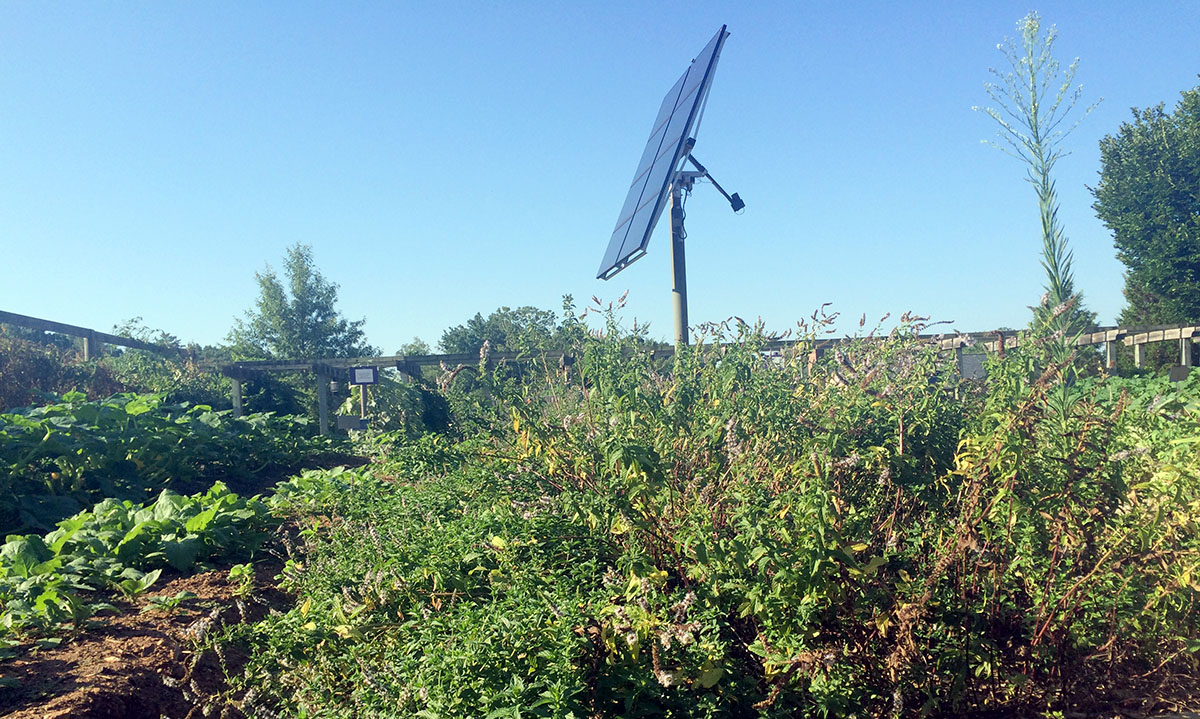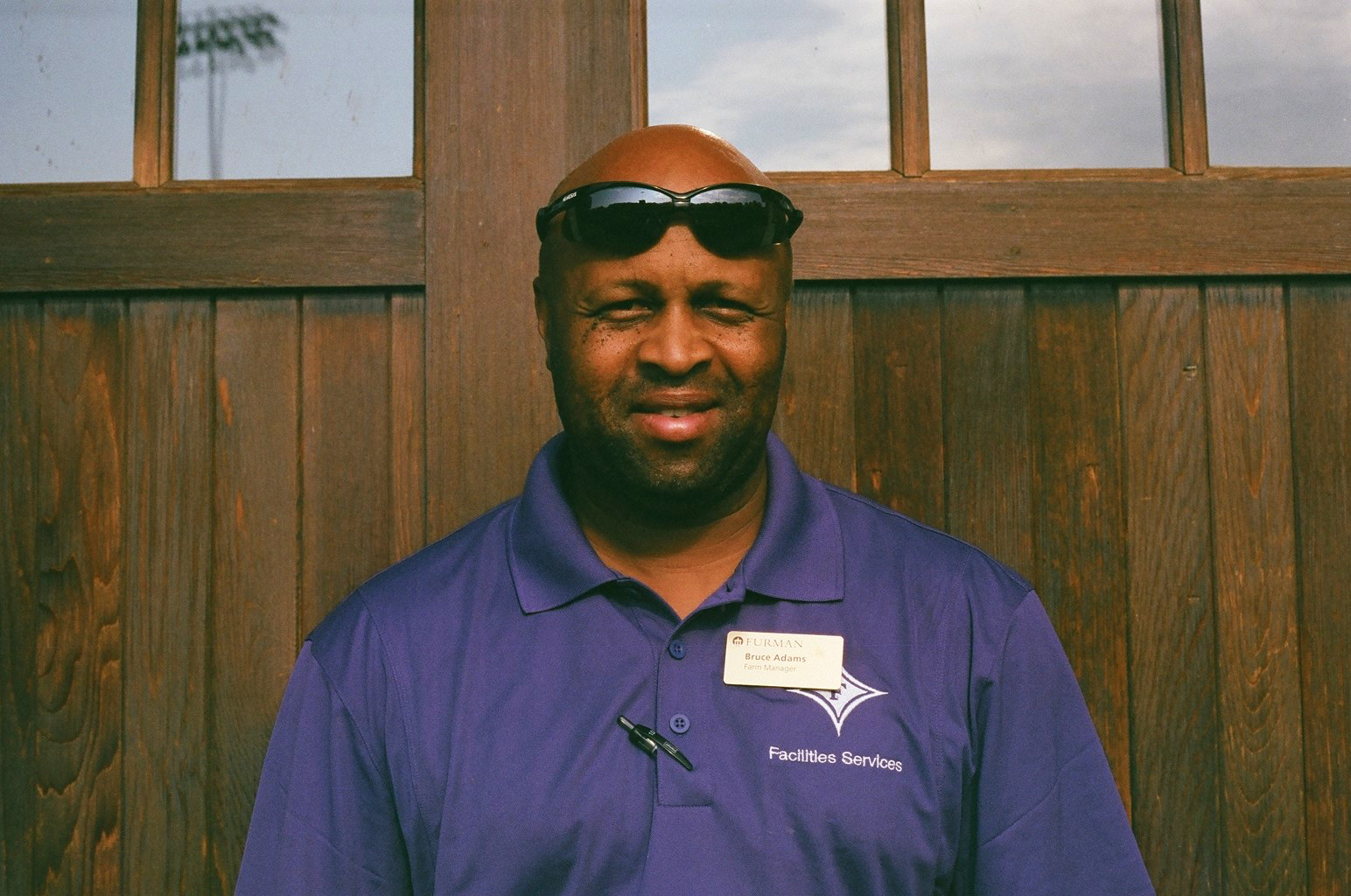A Haven for Sustainable Agriculture at Furman University
Set just north of the idyllic Furman Lake, an extremely nutrient-dense lake with countless turtles, mallards, and black and white swans milling about, is Furman University’s farm in Greenville, SC.

The Furman Farm’s solar panels
The first sign of it is a solar panel that rotates to maximize energy capture depending on the time of day and a loft where beehives were visible. Once I passed the student houses, built in the style of cabins, the farm opened up into planted rows of vegetables, all on just 1/4 acre.
Looking forward to sharing the resources of the Campus Farmers Network, which I coordinate as part of my job as a Bon Appétit Fellow, I met up with student farmers and Farm Manager Bruce Adams to spend a few hours working on the farm. Bruce’s position is full-time, and he serves as a guide for student volunteers and student workers, whether they’re seasoned campus farmers or have never set foot on a farm.
Students at Furman Farm can take leadership roles through the Shi Center, Furman’s Sustainability Office. The farm almost looks like a beautiful backyard garden of the Shi Center. South of the farm are the cooperative living spaces for Shi Center Fellows. These fellows are undergraduate students at Furman with a special interest in sustainability, who have opted to live in cooperative housing and participate in community programming and a sustainability-related internship.
Last summer and fall, the farm struggled with an aggressively hot sun that left parched soil and seedlings in its wake. Several crops needed to be replanted — a time-consuming and expensive task for a small farm. Many other farmers in the area, Bruce told me, had been forced to cut their losses and give up on whole crops. I spent my time there incorporating compost into soil in one row, and tilling to prepare the soil for a new planting.

Furman Farm Manager Bruce Adams is a fourth-generation family farmer, who keeps pigs, sheep, and chickens, and grows a variety of vegetables in Pumpkintown, SC
Bruce is himself a fourth-generation farmer. He farms a piece of land in Pumpkintown, SC — an apt name for a small farming town, if I’ve ever heard one!
The new Bon Appétit team at Furman is working with Bruce to create a Community Supported Agriculture program for Shi Center Fellows, so that they can have fresh farm produce in stocked CSA boxes to cook in their kitchens. The goal is that the Fellows will receive an increasingly immersive learning experience in sustainable living, from CSA shares harvested in their own backyard to the sustainable meals served in the café.
I also toured the composting program with Bruce. While the campus farm has several traditional compost piles, an aerobic in-vessel composter lies adjacent to the farm in a fenced-in area. Bruce regularly feeds the in-vessel composter a mix of kitchen scraps and post-consumer waste provided by Bon Appetit as well as leaves and woody debris provided by campus facilities, and even paper scraps from academic offices across campus. With all of the leaves coming from campus facilities, and the kitchen scraps coming from campus dining, the compost program has actually expanded onto a separate property called the Grace property, where beneficial bacteria work their magic on heaping compost piles that were taller than I am! Bruce essentially operates the Grace property on his own, turning the massive compost piles with a backhoe and using the heavy machinery to pile leaves on top of it all.
The Shi Center Fellows were working to determine whether there might be a market for the compost created at Furman in the future. One, Tindall Ouverson, had transitioned into a role as a compost fellow, of sorts. She was researching bukashi composting on the farm, a “turn-free” method of composting developed in Japan that relies on inoculated rice bran to ferment kitchen waste.
The Furman Farm is a wonderful example of a living-learning laboratory on campus, from the learning opportunities the Furman Farm offers to Shi Center Fellows and student volunteers, to the beautiful produce it provides for the whole student body in the Bon Appétit café.